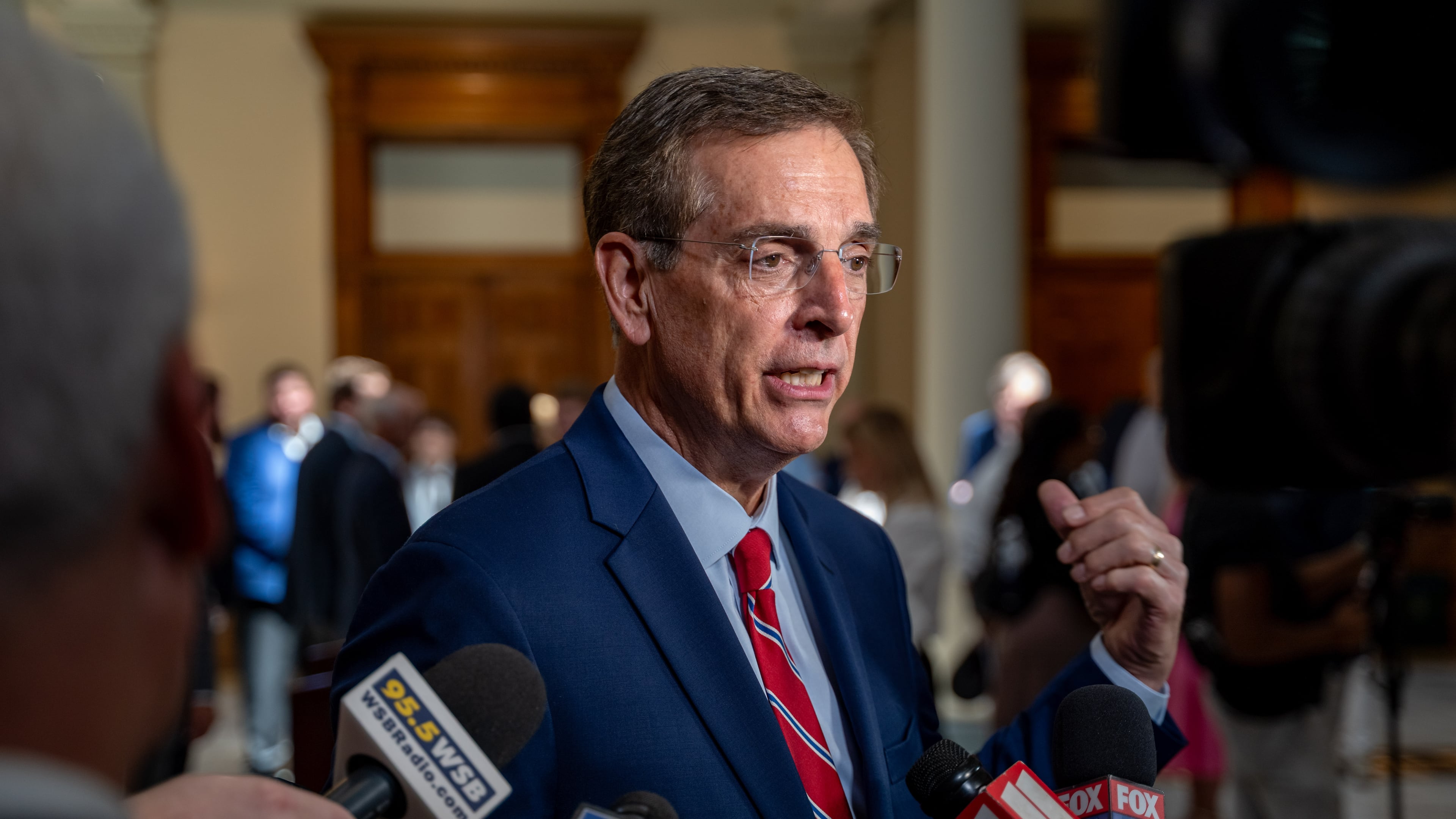Raffensperger launches 1st major policy plan with property tax-relief package

Secretary of State Brad Raffensperger unveiled a relief plan Monday that would cap annual property-tax increases to the rate of inflation and eliminate some local property taxes for seniors if the Republican is elected governor.
The package marks the first major policy rollout of Raffensperger’s campaign and signals that pocketbook issues will be a central part of his pitch in a competitive primary to succeed Gov. Brian Kemp.
The proposal came weeks after rising utility rates helped fuel a Democratic rout of two GOP incumbent Public Service Commissioners, an outcome that Raffensperger said was a “referendum on affordability.”
“No retiree should lose their home to property taxes after a lifetime of paying them,” Raffensperger said. “The people that built Georgia shouldn’t be taxed out of it.”
Raffensperger, who polled in second place in The Atlanta Journal-Constitution’s survey of likely GOP primary voters, is one of three top Republicans pushing for steeper tax cuts.
Lt. Gov. Burt Jones has made eliminating the state income tax — and the roughly $19 billion in annual revenue it brings to state coffers — a central theme of his campaign.
And Attorney General Chris Carr, has vowed to ensure Georgia has the lowest tax burden of any Southeastern state, promising to target taxes, fees and regulations he says are burdening businesses.

Top Democratic contenders are pushing for more limited reductions, including ending income taxes for schoolteachers and eliminating state taxes on tips and overtime pay.
An Atlanta Journal-Constitution poll found most Georgia Republicans favor repealing the state’s income tax, while most Democrats oppose the move. But a majority of both groups would pick local property tax relief over eliminating the income tax if given a choice.
Any cut to property tax rates could also leave a gap in local government budgets, which rely heavily on those revenues to fund schools, emergency services and other core functions. Cities and counties would have to either replace the lost revenue or reduce spending to make the numbers balance.
Under Raffensperger’s proposal, the total property taxes paid by Georgia homeowners could not grow faster than the Consumer Price Index. Local governments could exceed the cap only if voters approve it by a supermajority in a local referendum. The state Department of Revenue would certify each year whether counties and cities complied with the limit.
The plan would also eliminate all property taxes for Georgians 65 and older except those that directly fund K-12 schools and public safety. The exemption would apply automatically to any eligible homeowner with an existing homestead exemption.
Campaign officials said the senior exemption would save the average homeowner roughly $1,000 a year on a $300,000 house, while the cap on annual tax growth would save another $600 by preventing future spikes.
Raffensperger framed his proposal as a way to replace what he called an inequitable “patchwork quilt” of local relief programs. He pointed to House Bill 581 — which lets counties opt out of the state’s homestead tax exemption expansion — as evidence the current system leaves homeowners without a uniform system.
“My property tax reform plan will bring one uniform standard across all 159 counties,” he said. “One cap, one senior-protection rule, one predictable system.”



